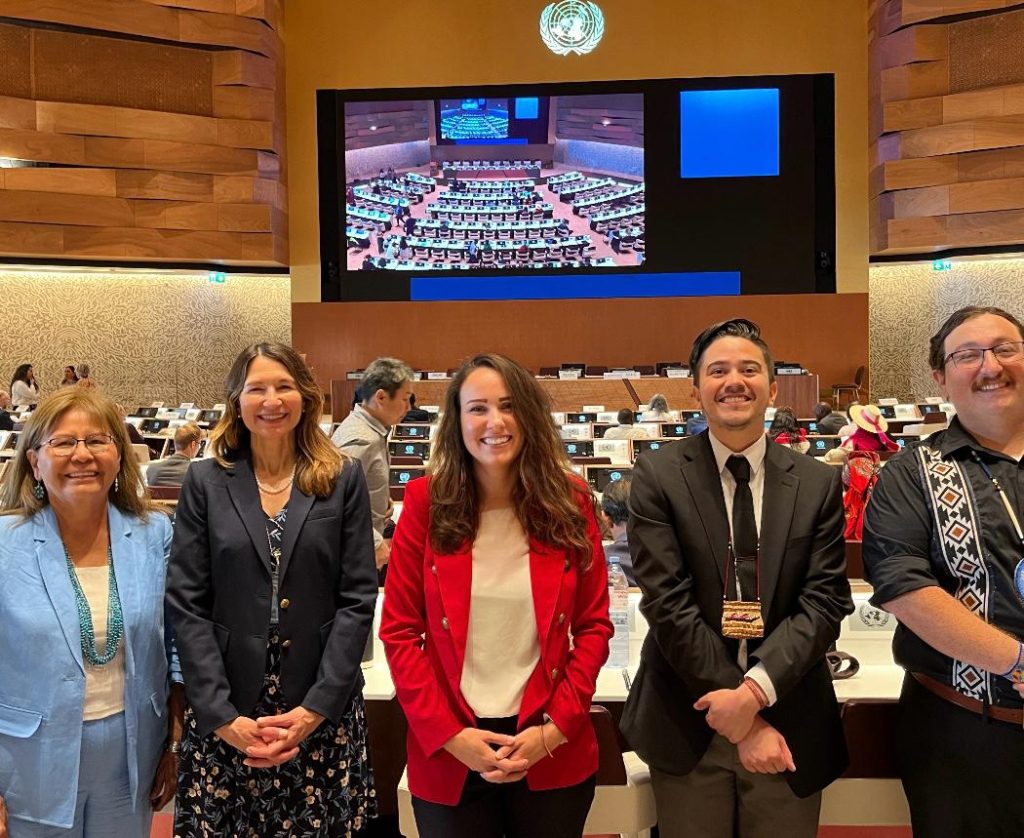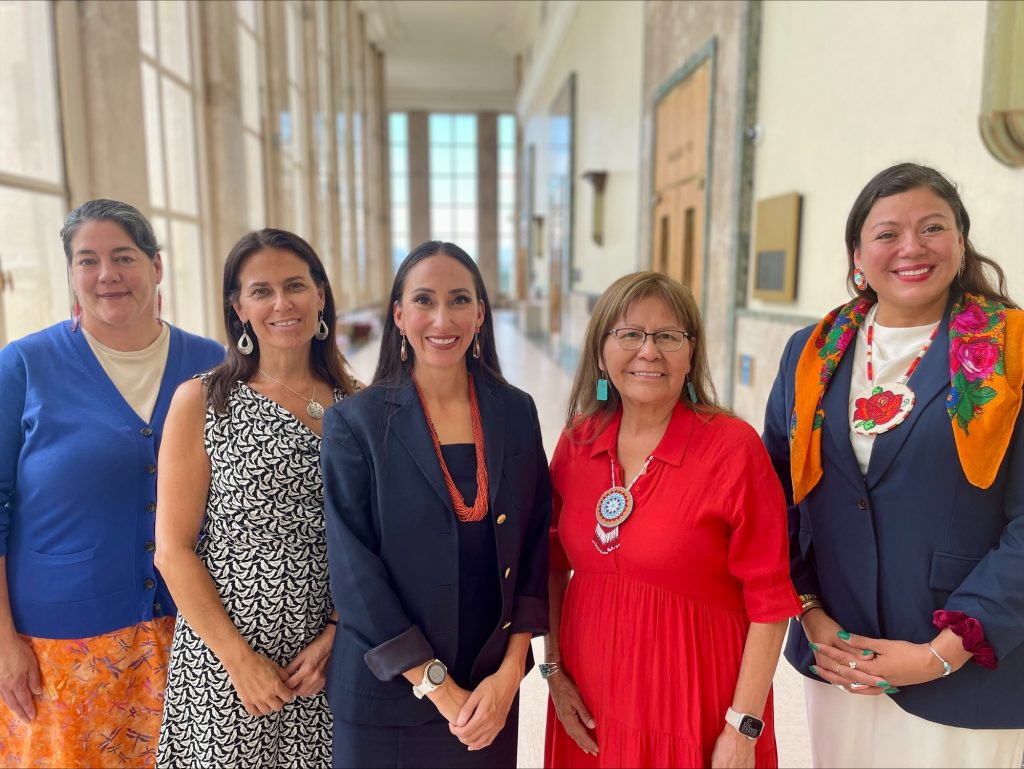The Implementation Project (TIP) attended the 17th Session of the Expert Mechanism on the Rights of Indigenous Peoples (EMRIP) from July 8-12, 2024, at UN Headquarters in Geneva, Switzerland. EMRIP is mandated to advise the UN Human Rights Council on the situation of Indigenous Peoples and to advance the aims of the UN Declaration on the Rights of Indigenous Peoples (the Declaration). This session focused on legislation and other measures to advance the Declaration, as well as ensuring Indigenous Peoples’ rights in post-conflict situations, language revitalization, and other topics noted in the “Programme of Work” available on the Session website.

TIP was represented by Co-Directors Kristen Carpenter, Council Tree Professor of Law and Director of the American Indian Law Program at the University of Colorado Law School, and Sue Noe, Senior Staff Attorney at the Native American Rights Fund, along with Emiliano Salazar, University of Colorado American Indian Law Program Fellow, and Colorado Law 3L Hannah Ahders.
In a statement delivered on behalf of TIP, Noe called on EMRIP to encourage States to heed Indigenous Peoples’ calls and move forward with implementing the Declaration, in accordance with the Declaration’s Article 38 and commitments made by Member States in the 2014 Outcome Document of the World Conference on Indigenous Peoples. She also requested EMRIP to provide details on how States should provide training to civil servants on the implementation of the Declaration.
Amplifying the call to protect Indigenous traditional knowledge, Noe, as well as Rochelle Morgan-Verdin, National Congress of American Indians, and Linda Benally, Native American Church-State of New Mexico urged UN Member States, including the U.S. to sign, ratify, and implement the World Intellectual Property Organization’s new Treaty on Intellectual Property, Genetic Resources and Associated Traditional Knowledge (Treaty). This historic Treaty requires patent applicants to disclose when their patent applications are based on Indigenous Peoples’ traditional knowledge and supports the inclusion of Indigenous Peoples in implementing the treaty.

On July 11, 2024, TIP and the University of Arizona co-hosted a Session side event entitled, “Intergenerational Impacts of Indian Boarding Schools in the United States: In Search of Answers and Healing,”. The event featured panelists Heather Whiteman Runs Him, Director of the Tribal Justice Clinic at the University of Arizona, Heidi Todacheene, Senior Advisor to the U.S. Secretary of the Interior, and Ruth Anna Buffalo, President of the Board of Directors of the National Native American Boarding School Healing Coalition.
Panelists at the side event reflected on the history of boarding schools, past efforts to recover attendance and mortality records from the U.S. government, and steps towards healing the generational harms committed against Indigenous Peoples. While Buffalo discussed draft legislation seeking federal accountability, Todacheene noted the Department of the Interior’s first ever investigative report on Indian boarding schools and emphasized the importance of telling the whole history of the U.S. by sharing Indian boarding school experiences. Grand Chief Wilton Littlechild, from the Maskwacis Cree First Nation in Canada, concurred, sharing, “I want the world to know what they did to me as a boy.”
In a statement delivered to EMRIP, Jen Procter Andrews, Vice Chair of the Coquille Indian Tribe and member of the Indigenous Determinants of Health Alliance, attested to the ways in which federal Indian boarding schools contributed to the loss of Indigenous languages and culture. She called for States to protect Indigenous languages by developing consistent and enforceable modes of protection from appropriation and monetization.
Climate change and biodiversity protection were also persistent themes at the Session, with Indigenous leaders raising awareness of the disproportionate impacts of natural resource extraction and the green energy transition on Indigenous Peoples. Representatives of Sami communities recounted EMRIP’s Country Engagement in Norway concerning the Fosen windmill project on traditional Sami reindeer herding land. Sami representatives both applauded EMRIP’s efforts and called for further action to finally dismantle the windmill farm.
The leadership of several UN bodies noted the recent rise in threats and intimidation of Indigenous Peoples and human rights defenders and called for an end to all reprisals.
Members of EMRIP, states, and Indigenous organizations called on the UN General Assembly, Human Rights Council, and other UN mechanisms to embrace enhanced participation of Indigenous Peoples. Several interventions noted that implementation of the Declaration requires enhanced participation of Indigenous Peoples at the United Nations and called for support of proposals under consideration at the Human Rights Council and General Assembly.
EMRIP’s recommendations to the Human Rights Council will be available on EMRIP’s website once published.
Article by: Emiliano Salazar and Hannah Ahders. Date: August 15, 2024
